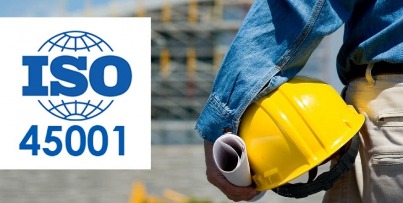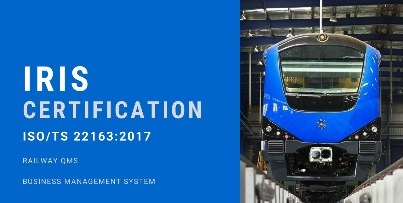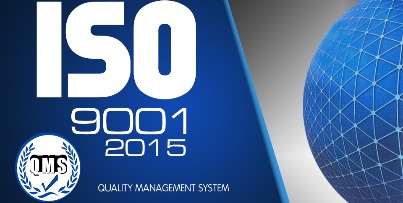
How ISO Certification helpful for railways?
ISO Certification is the best alternative for these businesses to demonstrate to their clients that they are producing world-class products and services. ISO Certification for Railways is critical to any country's economic progress. They are wholly owned by the government with the goal of providing high-quality products or services to the public while also improving the government's performance. The most suitable standard for railways is ISO/TS 22163 certification. As a result, the general public has high expectations for the quality, safety, and efficiency of their products or services. As a result, promoting this industry to achieve internationally recognised ISO standards as an efficient and effective management system aids these industries in meeting and exceeding public expectations. The most suitable standard for railways is ISO/TS 22163 certification.
Why do the railways need ISO Certification?
Railways must obtain internationally recognised ISO Certifications in order to emerge as efficient and effective management systems. ISO Certifications assist the railway industry in assessing and identifying all risks or hazards associated with its products or services, as well as determining how to minimise such risks or threats. ISO certification aids in the implementation of high-quality railway quality management systems. ISO standards are an excellent tool for ensuring railway network cooperation and effectiveness.
As a result, ISO certifications are critical for the railway business.
The automobile industry's absolute necessity for ISO Certifications may be seen at every stage of their services. In this context, the following points are highlighted:
- Having ISO/TS 22163 accreditation for the railway industry can help you gain international recognition by enhancing your global reputation.
- ISO Standards assist the railway industry in increasing organisational revenues and maximising profits for the benefit of the organisation.
- ISO certifications are applicable to nearly all railway sectors, regardless of size, kind, or process.
ISO accreditation enhances your company's reputation by demonstrating your commitment to meeting internationally recognised quality standards.
Which standards or ISO certificates are required for the Railways?
The International Organization for Standardization (ISO) develops standards that aid in the implementation of systematised management systems for the delivery of quality assured products and services, as well as enabling compliance with the relevant standard.
ISO 9001, ISO 14001, ISO 45001, and ISO 50001 are the most prevalent ISO standards for all types of railway industry. However, ISO/TS 22163 certification is the most significant and required ISO standard for the railway industry.
Let's have a look at these ISO standards in more detail:
ISO 9001 Standard
ISO 9001 is a global standard that establishes a framework for establishing Quality Management Systems (QMS) in businesses. As a result, ISO 9001 assures that the quality of your products or services fulfils client expectations, which is extremely advantageous to the prosperity of your country.
ISO 14001 Standard
By providing the basis for the construction of Environmental Management Systems, the internationally renowned ISO 14001 standard assists you in enhancing your contact with the environment (EMS). It also aids you in resource management and waste reduction in order to make your activities more environmentally friendly.

ISO 45001 Standard
The global standard ISO 45001 provides a framework for building an occupational health and safety management system (OHSMS) in your company. This protects both your employees and your visitors from work-related injuries.

ISO 50001 Standard
The international standard for energy management systems, ISO 50001 Certification, is a requirement. This ISO standard for the railway industry can help you enhance your overall energy management while also lowering your costs and operational expenses.

ISO 22163 Standard
The international standard for energy management systems, ISO 50001 Certification, is a requirement. This ISO standard for the railway industry can help you enhance your overall energy management while also lowering your costs and operational expenses.
Benefits of ISO certification for Railways Industry
ISO Certifications are valuable to practically every industry in the world of business. The railway industry is viewed as a vital component of economic trade integration. The need for high-quality, long-lasting railway services or products is growing by the day. ISO Certifications aid in the development of a standardised management system for the delivery of quality-based operations in your firm. ISO 22163 Certifications have the greatest potential for delivering quality-assured products or services to railway-related businesses, resulting in massive earnings for the organisation.
The following are some of the advantages of ISO certification for the automotive industry:
- ISO 22163 certification is an international standard for the railway industry that is extremely beneficial to your business since it examines and identifies all of the hazards associated with your processes and then finds a solution to reduce them.
- ISO certifications aid in the preservation of environmental, health, and safety measures, as well as the reduction of work-related risks and environmental dangers.
- ISO certifications for the railway industry aim to lay the groundwork for the effective and efficient transportation of goods and services, with a focus on energy efficiency and cost management.
- ISO Certifications for the railway industry eliminate the need for process rebuilding, resulting in cost savings in your industry.
ISO Certification process for Railways
- Application & contract
- Audit team Assignment
- Document view
- Certification Audit Independent review
- Notification of Certification
- Surveillance audit
- Re-Assessment
The certification process goes further. click here to view the next steps to ISO certification Process








